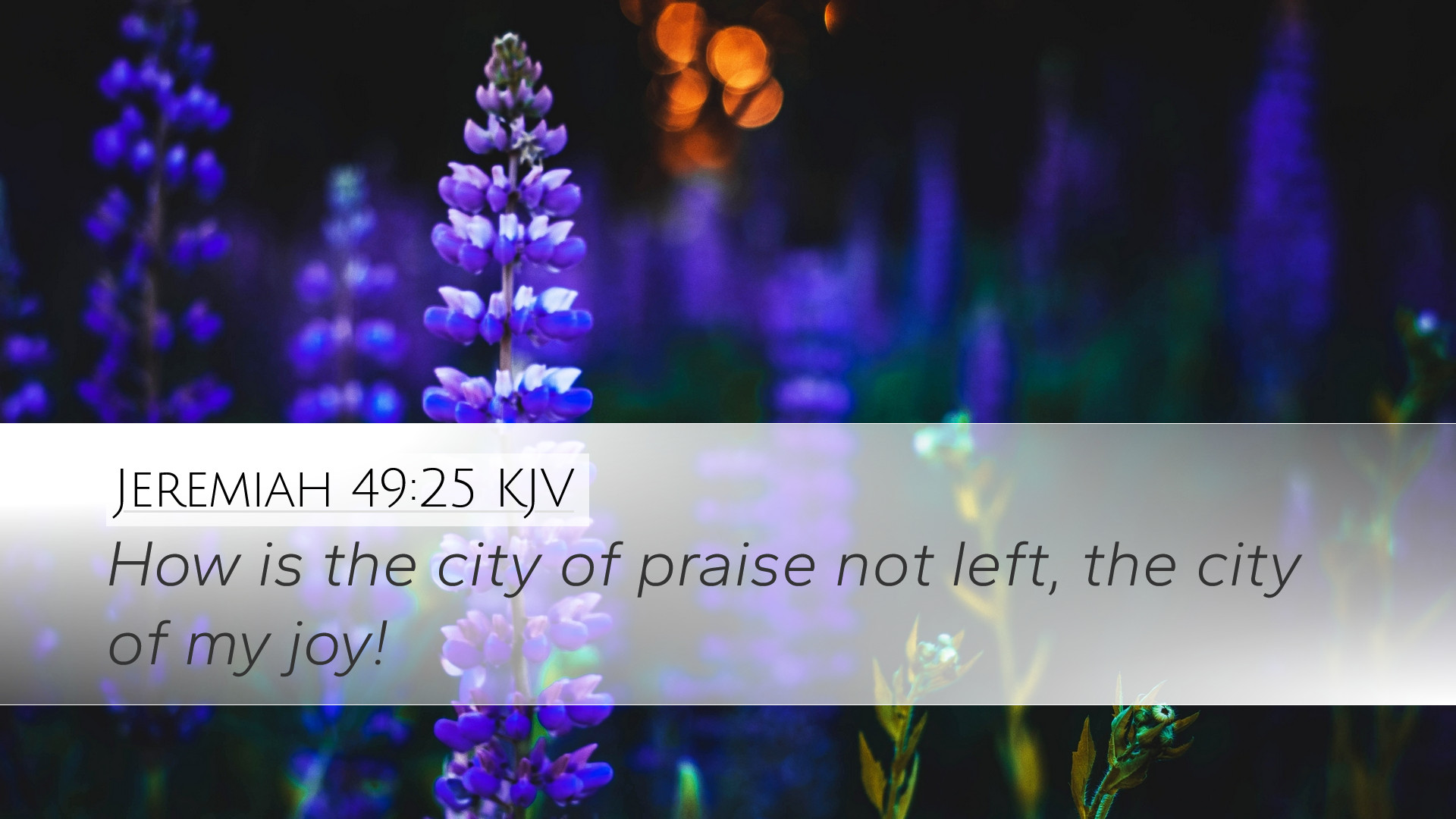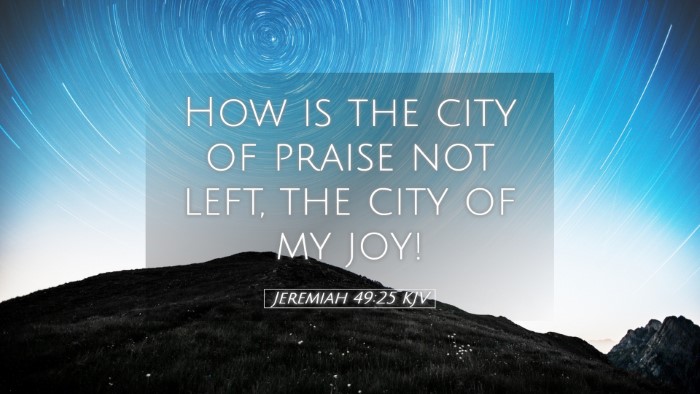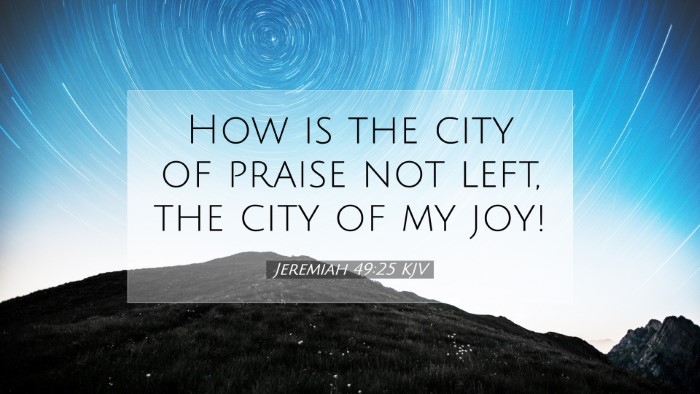Commentary on Jeremiah 49:25
Text of Scripture: "How is the city of praise not left, the city of my joy!" (Jeremiah 49:25, ESV)
This verse encapsulates a profound lament for the city of Edom, reflecting a broader theme of desolation and loss that permeates the prophetic writings of Jeremiah. It speaks to themes of identity, pride, and divine judgment.
Contextual Background
The prophecy regarding Edom comes against a backdrop of historical turmoil. Edom, historically a rival nation to Israel, is not just a geographical location but symbolizes human pride and resilience against divine authority.
Historical Significance
Edom's pride is underscored by its geographical position; it was situated in a mountainous region which afforded it security and an air of invincibility. However, as history illustrates, no nation stands forever against the judgment of God. The lament for Edom's destruction is twofold: it reflects a deep sorrow for the loss of a significant city, and it serves as a foreshadowing of God's righteous judgment.
Thematic Analysis
Praise and Joy
The reference to "the city of praise" and "the city of my joy" emphasizes Edom's former glory. It is a reminder that even places of great importance can fall due to the consequences of sin and rebellion against God.
- City of Praise: This expression encapsulates what Edom once stood for – a center of vitality, culture, and celebration. Its fame would have been known far and wide, yet this greatness is now vulnerable.
- The City of My Joy: The divine perspective on Edom reveals that God found joy in His creation, even when that creation turned away from Him. This duality raises theological questions about the nature of God’s joy in relation to human actions.
Divine Judgment
This lament identifies a stark reality: the judgment of God spares no nation and will ultimately lead to the ruination of even the most celebrated cities. The ultimate message remains that divine sovereignty prevails.
- Consequences of Sin: The downfall of Edom illustrates the biblical principle that pride leads to destruction (Proverbs 16:18).
- The Role of Prophecy: Prophecies surrounding Edom serve as warnings to other nations, urging them to heed God's call to repentance.
Commentary Insights
Matthew Henry's Perspective
Henry emphasizes the profound sorrow surrounding the fall of Edom, portraying it as a city that once embodied pride and joy but was now destined for desolation. He suggests that this serves as a reminder of the transitory nature of human accomplishments before God’s sovereignty.
Albert Barnes' Analysis
Barnes indicates that the passage reflects Edom's ultimate desolation while highlighting its previous state of glory. He remarks that God's judgment is both inevitable and just, underscoring the fate that awaits those who oppose the divine will.
Adam Clarke's Reflections
Clarke discusses the implications of Edom’s loss, noting that even those who may appear invincible are subject to the equality of God’s judgment. His commentary serves as a reminder that all nations and leaders are ultimately accountable before the Creator.
Application for Today
The principles derived from Jeremiah 49:25 call for introspective reflection among modern readers:
- Examine Our Pride: Just as Edom fell due to pride, contemporary believers must guard against the subtlety of pride and self-sufficiency.
- Acknowledge Divine Authority: Recognizing God's sovereignty over all nations emphasizes our need for humility and dependency on Him.
- Witness God’s Justice: The historical narrative of Edom serves as a dire reminder that divine justice is inescapable.
Conclusion
In summary, Jeremiah 49:25 serves as a poignant reminder of the fallibility of nations, the characteristics of divine grace and judgement, and the transient nature of earthly glory. The reflections provided by public domain commentaries allow pastors, students, theologians, and Bible scholars to delve into the depths of the text, seeking to extract its relevance for both historical understanding and contemporary application.


